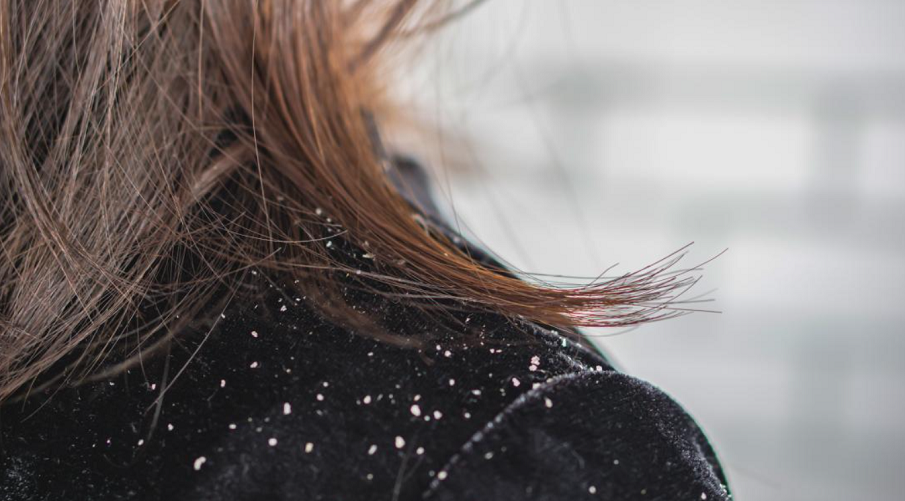Dandruff is a common hair condition caused by an imbalance in oils on the scalp.
It can lead to weakened hair follicles and scalp infections, causing brittle hair and odor.
Confidence can be affected due to visible flakes on the scalp or clothes and odor.
Treatment involves using the right conditioner, medical treatment, regular washing, and stress reduction.
With proper management, dandruff can be prevented from ruining your hair’s health.
Dandruff is a common hair condition that affects many people worldwide.
Despite being non life threatening, dandruff can significantly affect your self esteem and quality of life.
Besides visible flakes on your scalp and clothes, dandruff also affects your hair health, leading to hair damage and, eventually, hair loss.
Here’s what you need to know about dandruff, how it can affect your hair, and what you can do about it.
What is Dandruff?

First, it’s essential to know what dandruff is.
Dandruff is a common hair condition that affects many people.
It is not dangerous, but it can make you feel bad about yourself and your appearance.
With dandruff, you may see white flakes on your scalp or clothes.
It can also damage your hair and cause it to fall out over time.
Dandruff is caused by an imbalance in the oils on your scalp, creating too much skin shedding or irritation from specific fungi or bacteria.
To prevent dandruff, use products with ingredients like zinc pyrithione, selenium sulfide, ketoconazole, and salicylic acid to help balance the oils on your scalp and reduce inflammation.
5 Ways How Dandruff Can Ruin Your Hair:
1. Weaken Your Hair Follicles.
Dandruff causes scalp irritation and inflammation, leading to damaged hair follicles.
The inflammation can affect the sebaceous gland, which produces natural oils that keep your hair healthy and shiny.
Your hair is more prone to breakage with damaged follicles, and you may notice more hair fall than usual.
2. Infections.
Dandruff flakes are caused by an overgrowth of yeast on your scalp.
The yeast thrives on an oily scalp, which is often the case for people who don’t wash their hair often.
While the yeast may not be harmful, it can create a favorable environment for bacteria that can cause scalp infections.
These infections can weaken your hair shaft and eventually lead to breakage and hair loss.
3. Brittle Hair.
Dandruff can cause dryness on your scalp, leading to dry hair.
Dry hair is more likely to break and develop split ends, eventually damaging hair.
The flakes can also cling to your hair strands, making it look dull, lifeless, and unmanageable.
4. Scalp Odor.
The yeast that causes dandruff can also cause an unpleasant odor on your scalp.
The odor can be embarrassing, and many people try to hide it by using strong smelling hair products.
These products can further irritate your scalp and exacerbate the dandruff condition.
5. Confidence.
Dandruff and hair damage can affect your confidence and self esteem.
You’re less likely to feel your best if you constantly worry about flakes on your clothes or smell like scalp odor.
This can affect your relationships, work, and overall quality of life.
How to Deal With and Prevent Dandruff?
Dandruff can certainly be problematic for most people. Here are four ways you can deal with and prevent dandruff.
1. Use The Right Conditioner.
You must use the right conditioner for your hair.
A conditioner for hair fall must be a preventive measure against alopecia areata.
This conditioner is often made from natural ingredients like jojoba, coconut, and almond oil.
These natural oils help keep your scalp moisturized and healthy while helping reduce dandruff caused by dryness.
2. Medical Treatment.
If home remedies don’t work for you, it is best to consult a doctor.
Your doctor may prescribe medicated shampoos with antifungal agents to treat the underlying cause of your dandruff.
They may also suggest light therapy as an alternative treatment option if your condition is severe.
3. Wash Regularly.
Make sure to wash your hair regularly with anti-dandruff shampoo or conditioner.
This helps eliminate excess oils and flakes on your scalp that can lead to dandruff in the first place.
Wash your hair at least twice weekly to keep it clean and healthy.
4. Eliminate Stress.
Stress is one of the leading causes of dandruff, so it’s essential to learn how to manage stress to keep your scalp healthy.
Ensure you get plenty of sleep, exercise, and a balanced diet.
Additionally, try relaxation techniques such as yoga or meditation to help manage stress levels.
What You Should Remember?
Ultimately, understanding how dandruff can affect your hair health is critical in reducing its effects on you.
Being aware of the risks and symptoms will help you take action toward treating and preventing dandruff from ruining your hair.
You can return to having healthy, beautiful hair with the right treatment plan and lifestyle modifications.






